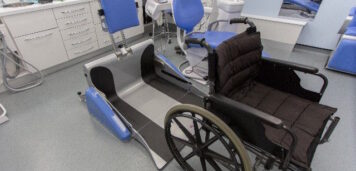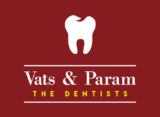Dentistry for Specially Abled
Dentistry for specially-abled individuals refers to dental care that is tailored to meet the unique needs of patients with physical, cognitive, sensory, or psychological disabilities. These individuals may have medical conditions or disabilities that require adjustments to regular dental care routines. This can include individuals with physical disabilities such as those who use wheelchairs, as well as those with sensory issues, developmental disorders, and other conditions that impact their ability to receive standard dental care. Providing dental care to patients with special needs requires a compassionate and individualized approach that takes into account their unique needs and challenges.

- Individuals with physical disabilities, such as those who use wheelchairs or have limited mobility
- Patients with cognitive or developmental disorders, such as Down syndrome or autism spectrum disorders
- People with sensory issues, such as those who are sensitive to touch or sound
- Patients with mental health conditions, such as anxiety or depression
- Individuals with chronic medical conditions, such as diabetes, epilepsy, or heart disease
- Elderly patients with age-related conditions that impact their ability to receive standard dental care
- Children with special needs, including those with behavioral or communication challenges
- Individuals with a history of substance abuse or addiction that may impact their dental health
- Patients with a history of trauma or abuse that may impact their ability to receive dental care.
It's important to note that each patient is unique, and their special needs may vary in nature and scope.
Dentistry for specially-abled individuals involves providing dental care that is tailored to meet the unique needs of patients with physical, cognitive, sensory, or psychological disabilities.
Dental patients with special needs may have physical disabilities, cognitive or developmental disorders, sensory issues, mental health conditions, chronic medical conditions, or age-related conditions that impact their ability to receive standard dental care.
Adjustments to dental care for patients with special needs can include modifications to the physical environment, specialized equipment, sedation options, communication methods, and customized oral hygiene education.
Specialized equipment that may be used in dentistry for specially-abled individuals can include lift chairs, wheelchair ramps, adjustable dental chairs, noise-cancelling headphones, and specialized lighting.
Sedation options for patients with special needs may include nitrous oxide (laughing gas), oral sedation, or intravenous (IV) sedation. The type of sedation used will depend on the patient's individual needs and medical history.
Dental professionals can communicate effectively with patients with special needs by using clear, simple language, visual aids such as pictures or videos, and by being patient and empathetic. It may also be helpful to use alternative communication methods, such as sign language or communication boards.
If there's anything you'd like to know more about, just let us know - we're always happy to provide additional information
Fill the details will get back to you shortly...


Working Hours
Monday - Saturday :
10:30 AM - 7:00 PM
Thursday: Holiday
Sunday: 10:30 AM - 1:00 PM
Call Us
+91 91081 24151
+91 99001 14151
Mail Us
happytohelp@vatsandparam.com